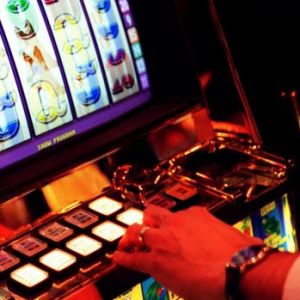550 Iowan Gamblers Request Lifting of Self-exclusion Bans
October 30, 2017 11:59 am In 2004, Iowa introduced its “Statewide Voluntary Self Exclusion Program,” that allowed problem gamblers to request a lifetime ban from casinos, and nothing less. On July 1st of 2017, however, they were also given a further option to request just a five-year ban, with those gamblers already having been self-excluded for that amount of time then able to submit the required paperwork to have their bans lifted.
In 2004, Iowa introduced its “Statewide Voluntary Self Exclusion Program,” that allowed problem gamblers to request a lifetime ban from casinos, and nothing less. On July 1st of 2017, however, they were also given a further option to request just a five-year ban, with those gamblers already having been self-excluded for that amount of time then able to submit the required paperwork to have their bans lifted.
At the time of the new program’s introduction there were around 6,354 Iowans with lifetime bans from entering casinos, but so far 550 of the state’s residents have now opted to have their self-imposed lifetime bans removed. Furthermore, all but fifty of the lifetime bans have been revoked, according to Brian Ohorilko, administrator of the Iowa Racing and Gaming Commission.
The bill which paved the way for self-excluded gamblers to limit the length of their bans was approved in both chambers of the Iowa Legislature before passing into law. Nevertheless, the bill raised eyebrows amongst gambling opponent, with one telling the Des Moines Register that “the lifetime ban is a positive medium for people’s process for recovery and helps both individuals and families. Allowing people to have a five-year time frame is problematic. Recovery is a lifelong process.”
On the other side of the debate, however, gambling advocates argued that only allowing a lifetime ban dissuaded people from choosing self-exclusion who might otherwise have opted for a shorter period of time.
Casino gambling is an important source of revenue for Iowa, and last fiscal year the state’s 18 commercial gambling facilities generated $1.437 billion in gross revenue compared to the $1.415 billion collected the previous year. A total of 21.54 million people also visited state casinos during the last fiscal period.
Like many US states, Iowa offers a state lottery, and in order to help people with gambling problems, a self-exclusion agreement is available in which a person can ban themselves from entering lottery offices all across Iowa. In practice this is difficult to accomplish, but the program also adds another layer of protection by preventing them from collecting any money that they might subsequently win. Commenting on the program, Iowa Lottery spokesperson Mary Neubauer stated:
“What we’re all trying to do is give someone who is trying to deal with the issue of compulsive gambling more tools that they can use to try to make a healthy recovery from the difficulty it has caused in their life.”

 Poker News
Poker News


